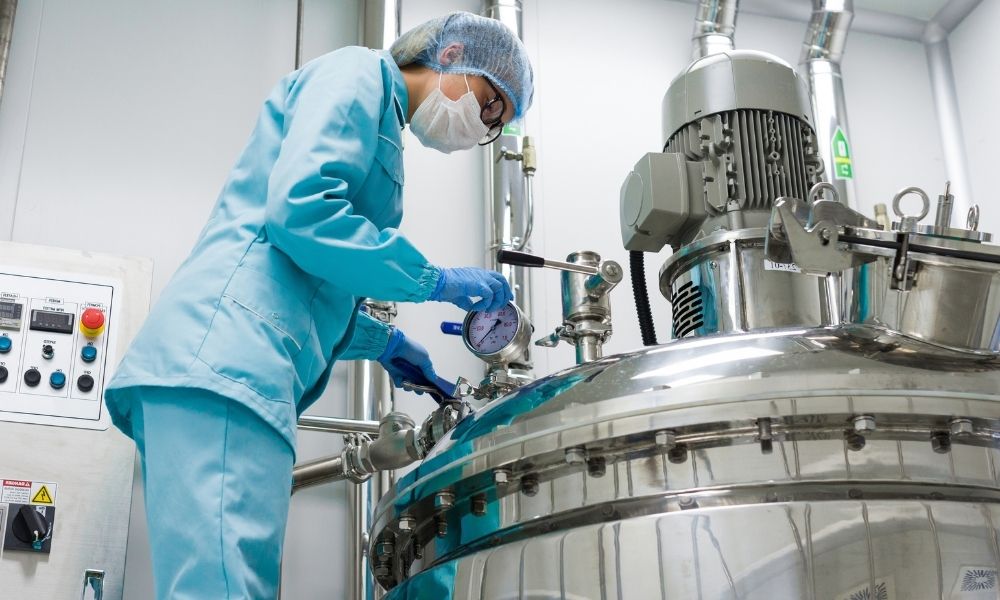Revolutionary Chemical Process Company Makes Industrial Workplaces Safer
As industrial operations continue to evolve and expand, the need for efficient and safe chemical processes is paramount. Chemical processing companies are at the forefront of this demand, constantly innovating to improve their operations and keep up with industry trends. With safety regulations becoming increasingly stringent, companies must find ways to enhance efficiency while maintaining a strict focus on safety.
In this blog post, we’ll explore how chemical processing companies can achieve both goals and provide insights on how to enhance safety in the workplace. We’ll dive into the latest advancements in technology, equipment, and methodologies that can improve chemical processing operations.
Importance of Chemical Processing
There are various reasons why chemical processing is crucial. One of the main benefits is the ability to develop materials and substances that possess specific properties that are necessary for different industries. For instance, in the pharmaceutical sector, chemical processing is vital as it guarantees the production of drugs that are both safe and efficient.
Chemical processing not only optimizes production processes and reduces waste, but also enables the extraction of valuable components from raw materials, thereby minimizing resource consumption and maximizing productivity.
Key Technologies and Equipment Used
1. Reactors
Chemical reactions are facilitated by vessels called reactors. There are different designs available, including batch reactors for small-scale production and continuous-flow reactors for large-scale and ongoing processes.
2. Separation Equipment
To extract desired substances from complex mixtures, separation equipment such as distillation columns, centrifuges, and filters are used. The usage of these technologies is essential in the purification and refinement of chemical products.
3. Control Systems
Advanced control systems are crucial for modern chemical processing companies as they oversee and regulate process variables such as temperature, pressure, and flow rates. This guarantees optimal operation and product quality is maintained.
Safety Measures and Regulations
- Chemical processing companies prioritize safety as the materials and processes used can be potentially hazardous.
- There are strict safety measures and regulations established to safeguard the well-being of employees, neighborhoods, and the ecosystem.
- Strict protocols are followed by chemical processing companies for the handling, storing, and disposal of chemicals.
- To mitigate the dangers of dealing with dangerous substances, measures such as safety training, emergency response protocols, and the use of personal protective equipment are put in place.
Environmental Impact and Sustainability
Chemical processing companies have made considerable progress towards enhancing environmental sustainability in the past few years. They are embracing eco-friendly approaches including the use of renewable energy sources, efficient resource management, and reducing emissions and waste production.
In addition, a lot of businesses are dedicating resources to explore eco-conscious substitutes and implement more enduring methods through research and development. The incorporation of green chemistry principles and the striving for circular economy ideas are molding the direction of chemical processing in the future.
Applications in Different Industries
Diverse industries benefit from chemical processing companies, which play a significant role in their growth and development. Noteworthy applications encompass:
- Pharmaceutical Industry: Global healthcare needs are supported by the production of medications, vaccines, and medical devices made possible through chemical processing.
- Food and Beverage Industry: The preservation of food, improvement of flavor, and creation of food additives and ingredients heavily rely on chemical processing.
- Automotive and Aerospace Industries: The use of chemical processing is employed in vehicle manufacturing for surface treatments, coatings, and the creation of specialized materials.
- Electronics Industry: The production of semiconductors, printed circuit boards, and electronic components require the involvement of chemical processes.
The Future of Chemical Processing
Emerging technologies such as nanotechnology, biotechnology, and artificial intelligence are being explored by companies to improve efficiency, product quality, and sustainability in chemical processing. This presents a vast potential for innovation and advancements in the field.
In addition, the field is being transformed by the incorporation of digital technologies like process simulation, data analytics, and automation. These advancements facilitate the real-time tracking, predictive upkeep, and enhancement of chemical processes.
In notes, chemical processing companies must prioritize enhancing efficiency and safety in their industry operations. This requires a comprehensive approach that includes the use of advanced technologies, proper training of personnel, and adherence to regulatory standards. By investing in these areas, companies can not only improve their bottom line but also safeguard the health and well-being of their workforce and the environment. In today’s rapidly evolving industrial landscape, companies that prioritize safety and efficiency are best positioned for long-term success.


